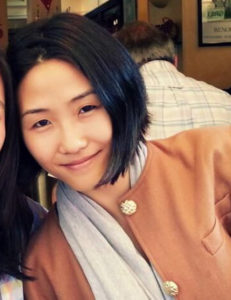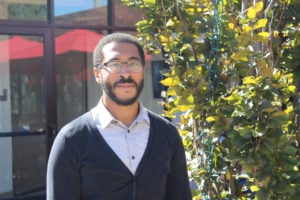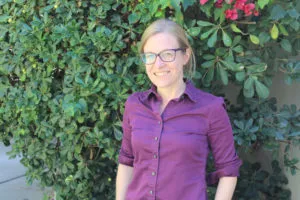Stanford’s Structured Liberal Education (SLE), a yearlong liberal arts-focused residential program for Stanford freshmen, prioritized disciplinary breadth in its choice of four new lecturers this school year. The four-year, fixed-term position consists of leading student sections in their discussions of texts spanning centuries and cultural lines.
Assistant Director of SLE Greg Watkins ’85 Ph.D. ’03 says that after two lecturers completed their terms and two found new jobs, SLE sought to form a team whose academic histories reflect the program’s disciplinary breadth, “because we have a curriculum that covers so much time, and includes literature, philosophy, religion [and] art.”
Watkins believes that the new hires create a team that will enhance the ways students interact with texts and connect historical pieces to contemporary issues. According to Watkins, SLE was particularly attuned to diversity in light of the Who’s Teaching Us movement last year, a student-led group that campaigned for increased faculty diversity.
“The Who’s Teaching Us conversations were more at the forefront of our mind, beyond that disciplinary breadth, more specific interests and making sure that those additional factors of a person’s profile helped us with the concerns that students have, ” Watkins said, pointing to one lecturer who studies the philosophy of race and another who is interested in queer studies.
The Stanford Daily sat down with each of the new lecturers to get a glimpse of their backgrounds and interests.
Ery Shin

Ph.D. Ery Shin has a diversity of interests – phenomenology, gender and sexuality studies and art history, among others – many of which she describes as outgrowths of her fascination with modernism. Shin received her undergraduate degree in English from Princeton University, followed by a master’s and Ph.D. in English Literature from the University of Oxford. She has since taught courses at Rutgers College and Eureka College.
Shin notes that one of the appeals of literature is the human element, and is fascinated by how the context of an author’s life or identity can bleed into literature. Currently, Shin is working on a book of close readings of Gertrude Stein’s works that integrates details of Stein’s personal history.
Shin’s interests also extend to gender and sexuality studies.
“I like experimental work and I like thinking through gender and sexuality,” Shin said. “That’s probably one of the most immediate things we grapple with, not on a theoretical level, but on a concrete everyday level as a woman.”
In terms of course goals, Shin hopes to expose students to modernist authors whose work is often glossed over in high schools, such as Djuna Barnes. She hopes to facilitate discussions in which students challenge themselves to come up with questions and “run with them,” and describes it as “a dream come true” to teach a Great Books course.
Michaela Hulstyn (Ph.D. ’16)

Michaela Hulstyn, who also describes herself as a modernist, is no stranger to Stanford, having completed her Ph.D. in French at Stanford in 2016. She has studied literature since her undergraduate years at the University of California, Los Angeles (UCLA), where she majored in French and Francophone Studies and Comparative Literature. She has since examined self-loss and self-transcendence in French texts.
“My thesis worked on conceptions of selfhood in French Literature, and the methodology really drew from philosophy as well as a little bit of cognitive psychology,” Hulstyn said.
Her thesis examines French texts related to “unselfing,” a term she uses to encompass self-loss and self transcendence, and tracks the narrative models by which writers explain their strange, altered life experiences during the twentieth century.
“I work at the intersection of philosophy and literature, so SLE is right up my alley,” Hulstyn said.
She was drawn to SLE both by her interdisciplinary interests and her experiences as a graduate student, during which she was a teaching assistant to current Director Josh Landy.
Through seminar discussions, Hulstyn hopes that students discover that texts are more unfamiliar than they had previously thought.
“I would be really happy if my students left the course with more questions than they came with,” Hulstyn said.
Michael Thomas

Ph.D. Michael Thomas draws on his background in philosophy as he makes connections between classics and the contemporary world. Thomas has received an undergraduate degree in liberal arts at the Louisiana Scholars’ College, and later his doctorate from the John U. Nef Committee on Social Thought at the University of Chicago, where his dissertation explored Alfred Whitehead’s social theory-focused philosophy.
Thomas, who also studies the philosophy of race and hip-hop, tries to bring nuance to class discussions by drawing parallels between the ancient and modern world. According to Thomas, contemporary popular music often uses elements such as mimesis and the adoption of personas, which are reflected in ancient texts.
“We think of the ancient world as this faraway place, but there isn’t a difference in kind between then and now,” Thomas said. “There’s a difference in quality – what the ritual was like, how we respond to music. A lot of those sentiments you’ll find in epic poetry or tragedy are things that we still actually feel.”
Ultimately, he hopes that his students experience texts by reflecting upon connections between their own lives and texts. SLE appealed to him because he believes that the allows a richness and novelty of discussions that are “fruitful, professionally and existentially.”
“For me, coming from a liberal arts background, this is the ideal educational environment,” Thomas said.
Kate Kretler

Also a Social Thought Ph.D. from the University of Chicago, Kate Kretler brings a fascination with Homer and psychoanalysis to the SLE team. She gravitated towards psychoanalysis during her undergraduate time at Harvard and received a B.A. in her self-designed major, Psychology and the Study of Religion. During her doctoral study, she delved into Greek, and her dissertation explored perspectives on Homeric performance.
Kretler has since held positions in classic language programs and broader humanities courses.
“I’ve been fortunate to be able to go back and forth between classics programs where I’m focused on language and I’m focused on reading in the original Greek and Latin, and then humanities programs where I’m backing away from that and putting these texts into a larger historical context,” Kretler said.
Kretler is excited to join the SLE community and views her position as an opportunity to see texts that she has explored in depth through the eyes of students encountering them for the first time. She believes that the residential component in combination with the rigor of the courses will foster discussions that extend past the scope of the classroom.
“I hope that they gain a sense for the rich experience of reading,” Kretler said.
She also hopes that students who emerge from the program “can shift gears from thinking of writing as persuading others to thinking of writing as a chance for them to think and change their own mind.”
Correction: An earlier version of this article stated that Michaela Hulstyn majored in Comparative Literature at UCLA. In fact, she majored in French and Francophone studies in addition to Comparative Literature. The Daily regrets this error.
Contact Claudia Heymach at cheymach ‘at’ stanford.edu.
